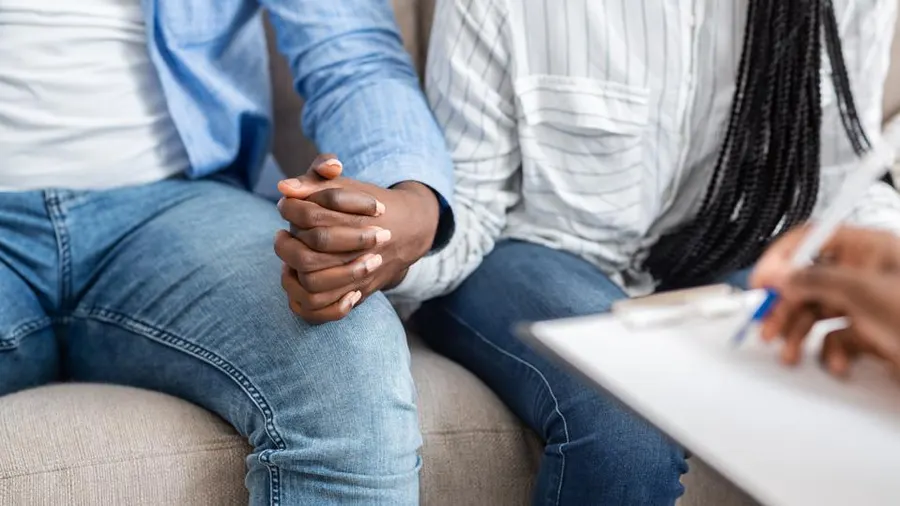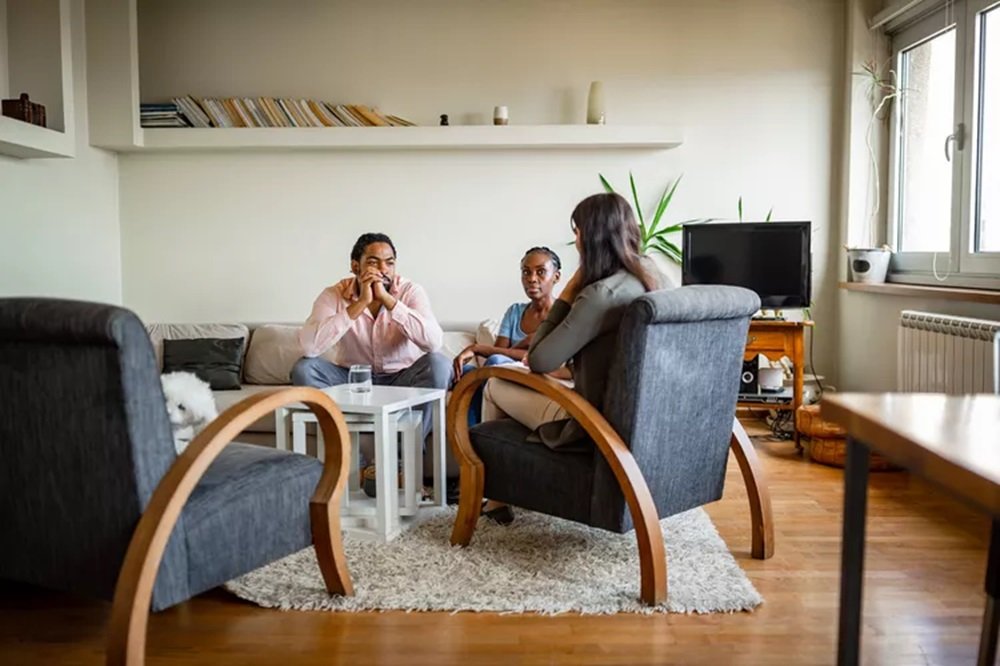Therapist for Couples: How They Can Help Your Relationship Grow
Therapist for Couples : A relationship can be complex; it can enrich and sometimes be challenging. There can be conflict when two individuals with their own experiences, expectations, and ways of communicating get together. Some couples will work through these issues on their own, but other couples get into a destructive circle of misunderstandings, resentment, or emotional withdrawal. That’s when a couples therapist may come into play.
Therapist for Couples, which is also called marital counseling or relationship therapy, is the practice of helping couples understand and resolve their conflicts, improve communication, and strengthen their relationships with targeted skills. If you and your partner have issues, a couples therapist might just hold the key to a healthier and more enriching relationship.
What does a therapist for couples do?

A couples therapist is a licensed professional who is also trained to work with couples through many of the issues that may befall relationships. They apply evidence-based methods in their practice, thus helping the couple improve in understanding each other, managing conflicts, and developing emotional intimacy. Here are some key roles that a couples therapist can play:
Most relationship conflicts have at their core some kind of communication problem. Couples therapists train partners to articulate their perceptions, emotions, and needs in a healthy and constructive manner. It includes active listening, showing empathy, and correcting negative communication patterns.
Identifying root issues:
Most of the issues couples outwardly face are symptoms of deeper, deeper underlying ones. The couple’s therapist helps expose those underlying causes, which might be past traumas, unmet needs, and unresolved past conflicts.
Providing tools and strategies:
Not all therapy involves just talking; there are also practical skills to learn. Among the conflict resolution strategies, emotion regulation techniques, and exercises that improve intimacy and build trust that a couples therapist can provide.
Safety in expression:
In a session of therapy, both partners should have a safe space to express themselves without being judged or retaliated against. In couples therapy, the therapist will provide a neutral platform on which both parties can communicate their feelings openly and honestly.
Common issues in couples therapy were discussed.
Therapist for Couples Can Resolve A number of problems beset the relationships. Following are some common issues that force couples to seek therapy:
Communication Problems:
Poor communication or lack of communication can lead to misunderstandings, resentment, and emotional distance.
Infidelity:
Trust issues in a relationship can run very deep. A therapist can help a couple process feelings linked to betrayal, understand the key issues, and consider whether to pursue rebuilding trust.
Financial Arguments:
Money is usually one of the most common areas of conflict in a relationship. Differences in spending habits, financial goals, or debt can strain a partnership.
Sexual issues:
Differences in sexual interest, unresolved sexual abuse, or intimacy problems may have an effect on the couple’s physical and emotional closeness.
Parenting challenges:
Child-rearing could be demanding on the relationships of couples as a result of disputes over discipline or parenting styles.
Changes to life:
Life changing events such as relocation, job changes, or health concerns can throw the balance off in a relationship and lead to stress or conflict.
Benefits of seeing a couples therapist
Better communication:
Arguably, the most valuable benefit derived from couples therapy is how to communicate. Couples therapists teach active listening, how to express feelings without blaming the other, and validating the experience of each other.
Conflict Resolution:
Conflicts arise in any relationship; however, it is how a couple makes it through such conflicts that may make all the difference in a relationship. These are the therapists who will help a couple learn the ways of navigating conflict in ways that strengthen rather than damage their bond.
Emotional Connection:
Over time, many couples experience an emotional disconnection. These are the couples that may benefit from therapy as a means to rebuild emotional intimacy through dialogue and openness of emotions.
Better understanding of one another:
Sometimes, therapy brings forth things about your partner that you never knew existed. This deeper understanding can create empathy and lessen frustration or feelings of alienation from one another.
Rebuilding trust:
Infidelity and breaches of trust are common problems many couples have to work through; a therapist offers them the venue through which they can heal. Therapists will lead the couple through the trying process of rebuilding trust and creating new patterns of transparency.
When to seek therapist for Couples
Knowing When to See a therapist for Couples Following are some of the signs and symptoms which hint that the time for treatment has come:
Frequent fights:
If fights are getting frequent and less productive, and their frequency is growing and building up with the passage of time, then it is high time to seek help.
Lack of emotional or physical intimacy:
In case you and your partner are having trouble getting in with each other emotionally or physically, therapy helps in uncovering the problems rooted underneath.
Feeling disconnected or alone:
If one feels isolated in their relationship or as though he or she and their partner are living separate lives, therapy may help fill the breach.
Recurring issues:
If the same issues keep popping up and are not fixed, it might indicate that something deeper is awry that might require professional help.
Major life transition:
Transitions like relocation, job change, or addition of a baby are stressful to a relationship. Having a couples’ therapist makes it easy for couples to transition with ease through the process.
Finding the correct joint therapist is important regarding effective treatment. The following are some suggestions on how to choose a therapist:
Ascertain that the therapist is licensed and has specialized training in couples therapy. Good indications include certifications such as LMFT (Licensed Marriage and Family Therapist) or LPC (Licensed Professional Counselor).
Check for compatibility:
This is important because you want both partners to feel comfortable with the therapist. Sometimes, a preliminary consultation will give you a sense of whether the therapist’s style and approach meet your needs.
Consider their modality:
There are so many: Focused Therapies, CB, Gottman Method, the list goes on and on. Familiarize yourself with those ahead of time so you can find one that uses a modality that you will relate to.
Ask for recommendations:
Referrals from friends and family or other health care professionals can serve as a pretty good starting point in finding a trusted couples therapist.
And the outcome of such a process is
It is here that a couples therapist can become an influential resource in strengthening relationships, resolving conflicts, and building connections on a deeper level. Therapy does not have to be about splitting up; it can also be one of those proactive ways for people looking forward to keeping and growing their relationships. With the right therapist, couples are able to learn how to communicate effectively, solve conflicts without argument, and actually create a flexible and fulfilling partnership.
When you and your partner struggle through the bad times, it might be good to consider a therapist for couples. You can never be too late to invest in the health and happiness of a relationship.







